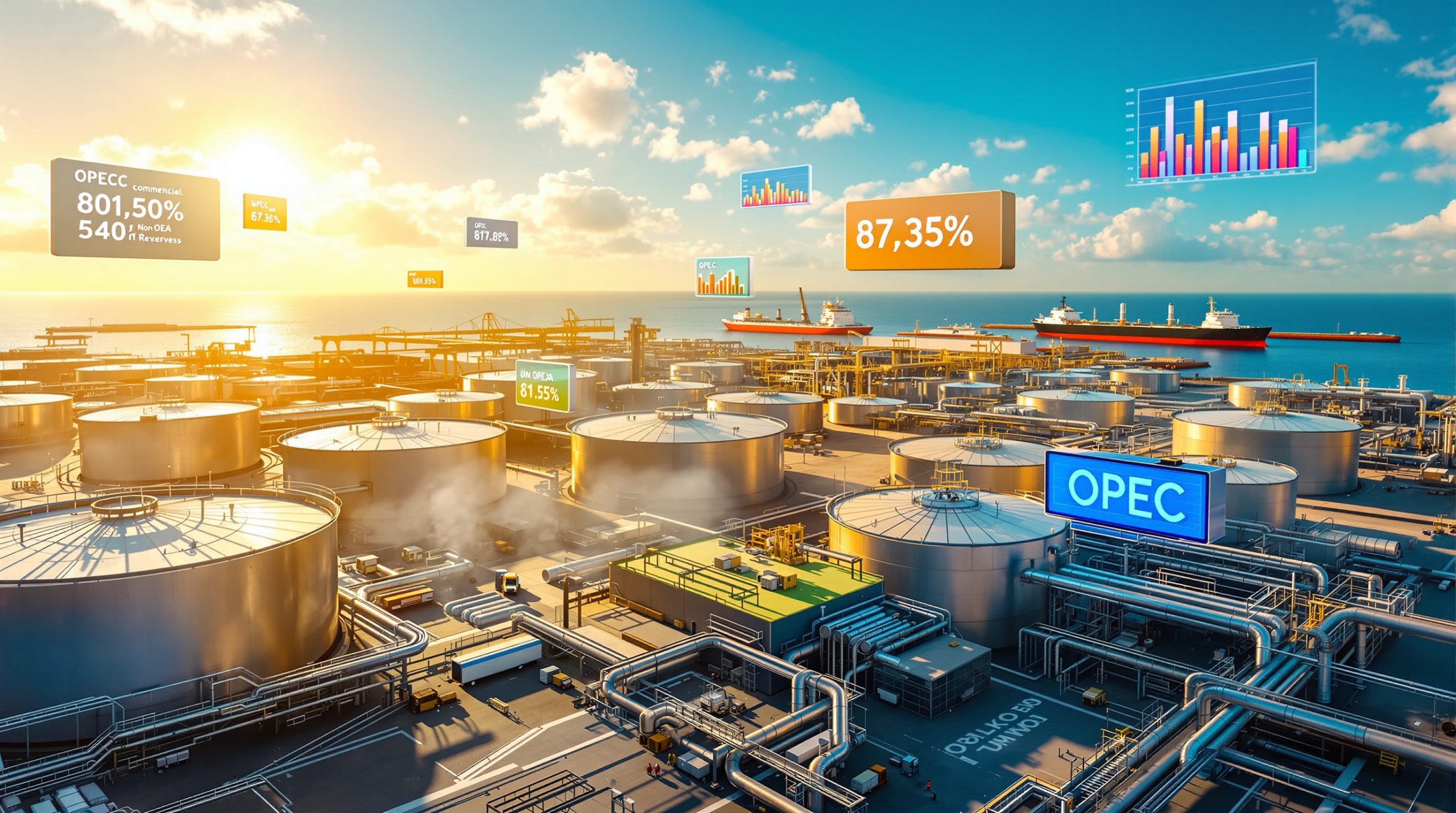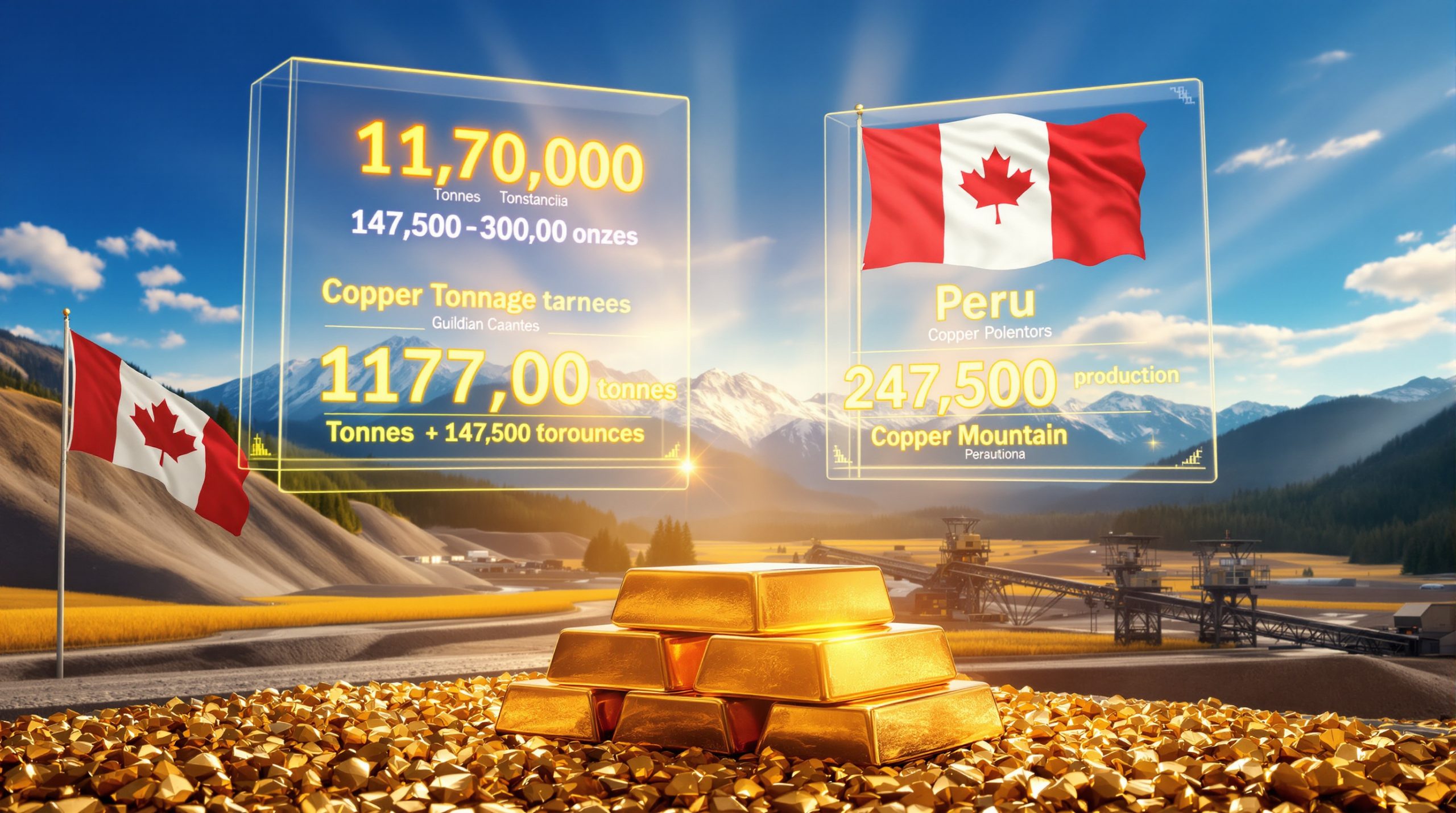Aclara's Quest for US Funding to Develop Non-Chinese Rare Earth Supply Chains
Aclara Resources, a Canadian mining company, is making significant moves to secure US government support for its ambitious rare earth projects. With increasing geopolitical tensions surrounding critical minerals, Aclara's strategic approach aims to create new supply chains outside of Chinese control while addressing growing demand for materials essential to green technology and defense applications.
How Aclara is Pursuing American Financial Support
Aclara Resources is actively seeking approximately $1.5 billion (C$2.04 billion) in US government financial backing to advance its rare earth mining and processing initiatives. This Canadian company, majority-owned by the Hochschild Group and publicly traded on the Toronto Stock Exchange, is strategically positioning itself as a critical partner in developing secure rare earth supply chains for North America.
CEO Ramon Barua has confirmed the company has submitted formal funding proposals to multiple US federal agencies and is preparing to present its business case in Washington. "Those conversations right now are private," Barua noted, "but a project like ours definitely catches the attention of the administration."
The company is exploring diverse funding avenues through agencies including:
- The Department of Defense
- The Department of Energy
- The US International Development Finance Corporation
"We are trying to explore together with them if there is an opportunity to join forces," Barua stated, highlighting the potential for public-private partnership in establishing critical mineral supply chains.
What makes Aclara's approach particularly noteworthy is its dual-geography model: mining operations in Latin America combined with processing facilities in the United States. This structure potentially allows the project to qualify for various US government funding mechanisms while maximizing resource utilization across the Americas.
The Strategic Importance of New Rare Earth Sources
Breaking China's Dominant Position
The geopolitical significance of Aclara's initiative cannot be overstated. China currently controls approximately 85% of global refined rare earth production, creating a precarious supply situation for Western nations dependent on these materials for advanced technology manufacturing.
The Pentagon has already demonstrated its commitment to reducing this dependency by investing in MP Materials, currently the only US-based rare earth producer. Barua strategically positions Aclara's initiative as "perfectly complementary to their MP Materials deal," suggesting a coordinated approach to building resilient North American rare earth capabilities rather than competing interests.
This complementary approach is particularly important given the specialized nature of different rare earth elements and their applications. While MP Materials focuses primarily on certain elements, Aclara's projects—particularly its Brazilian operation—target heavy rare earth elements that fulfill different market requirements.
Enabling Critical Green Technology Development
Rare earth elements are indispensable components in technologies driving the global energy transition minerals, including:
- Electric vehicle motors (particularly neodymium, praseodymium, and dysprosium)
- Wind turbine generators (requiring tons of rare earth materials per gigawatt of capacity)
- Energy-efficient electronics
- Defence critical materials requiring specialized magnetic properties
- Medical imaging equipment
As demand for these applications accelerates, particularly in the EV and renewable energy sectors, securing stable and environmentally responsible supply chains becomes increasingly vital. Industry analysts project rare earth demand could increase by 200-300% over the next decade, driven primarily by permanent magnet applications in clean technology.
Aclara's Development Projects in Latin America
Aclara is developing two primary projects that form the foundation of its rare earth strategy:
Chilean Clay Deposits Project
The company plans to begin extracting rare earth elements from clay deposits in Chile by 2028. These deposits represent a significant portion of Aclara's resource base and will supply critical elements for electric vehicles and renewable energy technologies.
Clay-based rare earth deposits offer potential advantages over traditional hard-rock mining, including:
- Lower processing costs
- Reduced environmental footprint
- Simplified extraction processes
- Potentially faster development timelines
Brazilian Heavy Rare Earths Initiative
In April 2025, Aclara achieved a major milestone by inaugurating its semi-industrial heavy rare earths pilot plant facility in Aparecida de Goiania, Goias, Brazil. This facility demonstrates the company's technical approach and will provide valuable operational data to support full-scale development.
Heavy rare earth elements (HREEs) like dysprosium and terbium command significantly higher prices than light rare earths and face even more severe supply constraints. China currently dominates global HREE production, making Aclara's Brazilian project particularly strategic from a supply diversification perspective.
Both projects are currently pre-revenue, with commercial production targeted to begin by 2028.
US Processing Facility Site Selection
While mining operations will be established in Latin America, Aclara is evaluating several potential US locations for its critical processing facilities. The company is considering sites in:
- Louisiana
- Texas
- South Carolina
- Virginia
This strategic decision to locate processing operations in the United States aligns with both business and policy objectives:
- Access to funding: US-based processing facilities may qualify for various government support mechanisms
- Technology security: Keeps proprietary separation technologies within US borders
- Transportation efficiency: Reduces shipping costs to US-based customers
- Policy alignment: Supports US government objectives for domestic critical mineral processing
- Workforce development: Creates high-skilled jobs in rare earth processing technology
The final site selection will likely depend on a combination of factors including state-level incentives, logistics considerations, workforce availability, and proximity to end-users like Vacuumschmelze's planned magnet manufacturing facility.
Building Strategic Partnerships Across the Supply Chain
Aclara has established a strategic partnership with German magnet manufacturer Vacuumschmelze, which plans to build a production facility in South Carolina. This collaboration represents a significant step toward creating a complete Western rare earth supply chain from mining through to finished magnets.
The partnership creates a potential end-to-end value chain:
- Mining: Rare earth extraction in Chile and Brazil
- Processing: Separation and refinement in US facilities
- Magnet manufacturing: Production of high-performance magnets at Vacuumschmelze's South Carolina facility
- End-use applications: Integration into EVs, wind turbines, and other applications
This vertical integration approach addresses multiple vulnerable points in the rare earth supply chain, potentially reducing Western dependence on Chinese processing and manufacturing capabilities that have been built over decades.
Shifting Market Sentiment for Rare Earth Projects
Despite historical volatility in the rare earths sector, Aclara reports a fundamental shift in investor sentiment driven by three key factors:
- Intensifying geopolitical tensions between China and Western nations
- Export restrictions implemented by China on various rare earth materials
- Growing recognition of critical supply chain vulnerabilities in strategic minerals
"Investors are now prioritizing the timeline for project commencement over price concerns," according to Barua, reflecting the strategic importance of establishing non-Chinese supply chains regardless of short-term economic considerations.
This represents a dramatic shift from historical investment patterns in the sector, where price sensitivity often dominated decision-making. Today, security of supply has emerged as the paramount concern for both government and private sector investors.
Barua emphasized that for projects requiring funding and offtake agreements, "recognizing that the price of these elements is significantly higher than what the Chinese suggest, is very important." This indicates a willingness among Western buyers to pay premium prices for secure, non-Chinese rare earth supplies—a critical factor in project economics.
Project Development Timeline
Aclara has outlined the following timeline for its operations:
| Project Phase | Expected Timeline |
|---|---|
| Mining operations in Chile and Brazil | Beginning by 2028 |
| US processing facility selection | Currently evaluating locations |
| Brazil pilot plant | Inaugurated April 2025 |
The company's development roadmap spans several years, reflecting the complex nature of establishing new rare earth mining and processing capabilities. While some critics question whether this timeline is fast enough to address immediate supply concerns, others recognize the inherent challenges in developing new sources for these specialized materials.
Financial Considerations for Investors
Current Financial Status
Aclara Resources does not currently generate revenue, as its projects remain in development stages. The company is actively seeking the $1.5 billion (C$2.04 billion) required to bring its Latin American mining operations and US processing facilities online.
This pre-revenue status is typical for mining development companies, particularly in specialized sectors like rare earths where development timelines are measured in years rather than quarters.
Ownership Structure
Aclara is majority-owned by the Hochschild Group, a well-established mining company with significant experience in Latin American operations. This relationship provides important technical expertise and financial stability as Aclara develops its projects.
The company is publicly listed on the Toronto Stock Exchange, providing investors with exposure to the rare earths sector through an established corporate structure with strong governance.
Investment Considerations
For potential investors evaluating Aclara, several factors may influence the company's prospects:
- Government support: The extent of US government financial backing could significantly reduce project risk and improve financial viability
- Geopolitical dynamics: Continuing tensions with China may increase Western willingness to pay premium prices for non-Chinese supplies
- Execution timeline: The company's ability to meet its 2028 production target
- Partnership development: Progress in establishing additional offtake agreements with end-users
- Processing technology: Successful demonstration of rare earth separation capabilities at commercial scale
Broader Trends in the Rare Earth Market
Aclara's financing initiatives reflect four fundamental shifts occurring in global rare earth markets:
- Government intervention: Increasing direct government investment in critical mineral projects to reduce dependency on China, as seen with the Pentagon's support for MP Materials and potential backing for Aclara
- Regional processing hubs: Development of specialized processing capabilities in "friendly" jurisdictions outside China, with Aclara's planned US facilities representing this trend
- Vertical integration: Strategic partnerships spanning the supply chain from mining to manufacturing, exemplified by Aclara's collaboration with Vacuumschmelze
- Premium pricing: Growing acceptance of higher prices for secure, non-Chinese supplies, as noted in Barua's comments about pricing realities
These trends suggest a fundamental restructuring of global rare earth supply chains, with significant implications for mining companies, manufacturers, and end-users of rare earth products.
Environmental and Social Considerations
While specific environmental aspects of Aclara's projects weren't detailed in the available information, rare earth mining and processing typically involve several important considerations:
- Mining impacts: Potential land disturbance, water usage, and waste management challenges
- Processing emissions: Chemical processes required for rare earth separation and refinement
- Community relations: Engagement with local communities in Chile and Brazil
- Regulatory compliance: Meeting environmental standards in multiple jurisdictions
Aclara's clay-based extraction approach may offer environmental advantages compared to traditional hard-rock mining methods, but detailed assessments would be needed to quantify these benefits.
FAQs About Aclara's Rare Earth Projects
What rare earth elements will Aclara's projects produce?
While specific element targets weren't detailed in available information, the company's Brazilian facility focuses on heavy rare earth elements, which typically include dysprosium, terbium, and other high-value elements essential for high-performance magnets used in EVs and wind turbines.
How does Aclara's approach differ from traditional rare earth mining?
Aclara is targeting clay deposits in Latin America, which may offer different extraction challenges and opportunities compared to traditional hard-rock mining or ion-adsorption clay deposits found in China. Clay-based extraction often requires less energy and can have a smaller environmental footprint.
What advantages might US government financing provide?
Beyond direct capital, government support could provide regulatory certainty, potential tax benefits, and priority access to government procurement programs for critical minerals. It may also facilitate streamlined permitting and interagency coordination.
How might China respond to Western rare earth development?
China has historically used its dominant position in rare earths as leverage in trade disputes. Further development of non-Chinese sources may prompt competitive responses in pricing or export policies, potentially creating market volatility during the transition period.
The Road Ahead for Aclara
As Aclara advances its dual-geography model for rare earth development, the company represents an important test case for Western efforts to establish secure supply chains for these critical minerals. Success will depend on executing technical aspects of the projects while navigating complex geopolitical and market dynamics.
The company's ability to secure US government support will likely prove pivotal to its development timeline and ultimate success. As one of relatively few non-Chinese rare earth development projects with a clear path to production, Aclara seeks US financing for rare earths mining as part of a broader pivot to critical minerals happening across Western nations. Additionally, this project may follow a similar pattern to a recent US EXIM loan case for strategic minerals, demonstrating growing government commitment to secure critical supply chains.
Looking for the Next Big Resource Discovery?
Stay ahead of the market with Discovery Alert's proprietary Discovery IQ model, which instantly identifies significant ASX mineral discoveries and transforms complex geological data into actionable investment insights. Visit the Discovery Alert discoveries page to understand how major mineral discoveries like rare earths can lead to substantial returns, and begin your 30-day free trial today.




